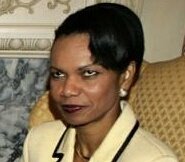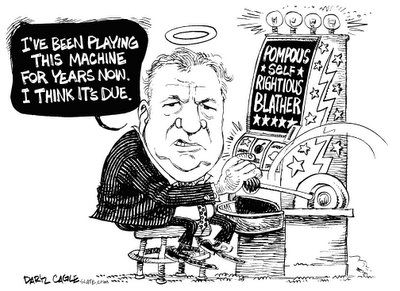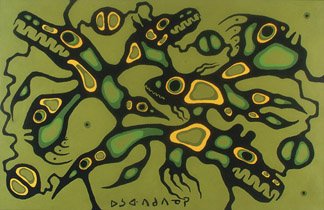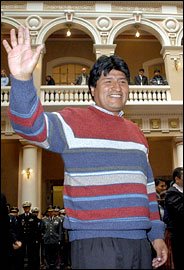The world's greatest omnivores?

Handsdown, the Chinese. I really had to fight the urge to give this post a less appropriate headline- it's just too easy.
As if we already didn't know this.
Crawling out of the Mainstream Media cave and making sense of the blooming buzzing digital confusion.



I play because I have a very creative mind and a very noncreative job. So the game helps me balance it out. There is no creativity at the computer, because you're limited by what the programmers thought you might do. Here in person, I can react dynamically to the players and craft an adventure specifically for them.



 Mmmmm...Thanks Mo! Hope they didn't use lard...
Mmmmm...Thanks Mo! Hope they didn't use lard...

 While the case for a cyborg Cheney may appear compelling, alternatives have been proposed. One intriguing possibility is that Cheney has in fact pledged allegiance to certain dark forces in exchange for unnatural powers. While Cheney has indeed been allied with the military and oil industries, advocates of this theory believe there are even more nefarious allegiances at play. More specifically, it has been speculated that Cheney may be tapping into some sort of universal evil force. Proponents of this particular evil-Cheney model cite his pale and withered exterior, fatigued inexpressive facial musculature, and repeated heart troubles, as evidence of evil-force drainage that Cheney would likely suffer after a particular vigorous channeling of the hypothetical evil force.
While the case for a cyborg Cheney may appear compelling, alternatives have been proposed. One intriguing possibility is that Cheney has in fact pledged allegiance to certain dark forces in exchange for unnatural powers. While Cheney has indeed been allied with the military and oil industries, advocates of this theory believe there are even more nefarious allegiances at play. More specifically, it has been speculated that Cheney may be tapping into some sort of universal evil force. Proponents of this particular evil-Cheney model cite his pale and withered exterior, fatigued inexpressive facial musculature, and repeated heart troubles, as evidence of evil-force drainage that Cheney would likely suffer after a particular vigorous channeling of the hypothetical evil force. 


If you own Nortel, or a mutual fund holding it, don't bail out now. If you do not own Nortel, then this is the time to start accumulating it.
I am constantly amazed at the assumption people make that they can manage their own finances, most people can't. They don't have a clue how to pick stocks

 CNN recently hired America's self-proclaimed paragon of virtue/compulsive high-stakes gambler, Bill Bennett, as a commentator- obviously hoping to win some cred with the wingnut set. In a debate over the Muhammad cartoons with John Zogby, Mr. Bennett decides to try and convince his viewers that Islam is an evil religion. How statesman like of you Bill, thanks for helping to defuse the incredibly tense situation. From the failed 'war on drugs', to peddling cheap fixes to 'save America's values', to his apparent present desire to wage a holy war on Islam: Is it possible for this twit to do any more damage?
CNN recently hired America's self-proclaimed paragon of virtue/compulsive high-stakes gambler, Bill Bennett, as a commentator- obviously hoping to win some cred with the wingnut set. In a debate over the Muhammad cartoons with John Zogby, Mr. Bennett decides to try and convince his viewers that Islam is an evil religion. How statesman like of you Bill, thanks for helping to defuse the incredibly tense situation. From the failed 'war on drugs', to peddling cheap fixes to 'save America's values', to his apparent present desire to wage a holy war on Islam: Is it possible for this twit to do any more damage? Muslim WakeUp! seeks to bring together Muslims and non-Muslims in America and around the globe in efforts that celebrate cultural and spiritual diversity, tolerance, and understanding. Through online and offline media, events, and community activities, Muslim WakeUp! champions an interpretation of Islam that celebrates the Oneness of God and the Unity of God's creation through the encouragement of the human creative spirit and the free exchange of ideas, in an atmosphere that is filled with compassion and free of intimidation, authoritarianism, and dogmatism. In all its activities, Muslim WakeUp! attempts to reflect a deep belief in justice and against all forms of oppression, bigotry, sexism, and racism.


"We are glad to see that Canadians have values-voters too," said Bob Morrison of the Family Research Council, a Washington-based group opposed to abortion and gay marriage. "We can be optimistic about the end of the social engineering as driven by the Martin government."
ACCORDING TO his opponent, Canadian Conservative Party Leader Stephen Harper exposed "an agenda really drawn from the extreme right in the United States.".... He might just become -- heaven forbid -- "the most pro-American leader in the Western world."...Despite all those scary warnings, Mr. Harper and his party won Canada's election on Monday. That put an end to 12 years of increasingly incoherent and corrupt rule by the Liberal Party...
Canada sells 85 percent of its exports to the United States and depends on it for security as well as prosperity -- a fact that Mr. Martin opportunistically overlooked when he refused to join the U.S. missile defense program. His grandstanding merely gave Mr. Bush an excuse to ignore Canada's legitimate complaints about tariffs on softwood lumber and the impact of new border controls due to take effect this year.
Foreign political leaders who stick to a platform of friendship and cooperation with the United States in the teeth of anti-American mudslinging ought to be visibly rewarded. As for Mr. Martin, perhaps he will be tempted again by the example of Mr. Schroeder, who has taken a job as an agent for Russian President Vladimir Putin. Does Hugo Chavez need another lobbyist?
Arriving in Ottawa in the afternoon, he made the briefest, and vaguest, of statements at the airport. ''I know a lot of you are going to be with us now in the next few months and years ahead,'' he said, ''as we start rebuilding this great country of ours. Mr. Harper's modest words in part reflect a man who is shy to the point of being aloof, someone who has always been careful not to show all of his cards. He is known to have a fiery temper, and he barely disguises his distrust for reporters. His sense of humor on the campaign trail was most revealing in its self-deprecating jokes about his lack of charisma.











This week a new front-runner has emerged in the men's wear style stakes...Evo Morales, president-elect of Bolivia, has been rigorously working what is known in the world of fashion as a 'signature look.' Or, in lay terms, wearing the same thing every day, but in a good way...The irregularity and the colour of the stripes lend a slightly 80s look to the jumper, something the president elect is bold enough to embrace in the way he wears it. For a visit to an apartheid museum in Johannesburg, he styled it casually knotted, brat-pack style, around his shoulders...
Beatriz Canedo Patiño, Bolivia's best-known fashion designer, who designed outfits for Hillary Rodham Clinton during a visit to Bolivia as first lady, was called on to design a suit for Mr. Morales's inauguration. Ms. Canedo Patiño saw no need to outfit him in a tie or standard dark suit but said she wanted to avoid "screaming colors" and to devise something elegant. She went with a dark jacket and pants, made from baby alpaca and embroidered with a pre-Hispanic motif, reflecting Mr. Morales's roots. I wanted something Aymara, and Aymara culture is very rich...I respect that he does not put on a tie, but there are things that he can do to dress for the world.

We leave a country in very strong economic shape, in fact, one of the strongest of the industrial world, a country that clearly has the wind in its sails. Canadians are optimistic, with every reason to be so... I think that we accomplished a great deal, and I feel very proud of what my government and what my caucus and what Canadians have done
